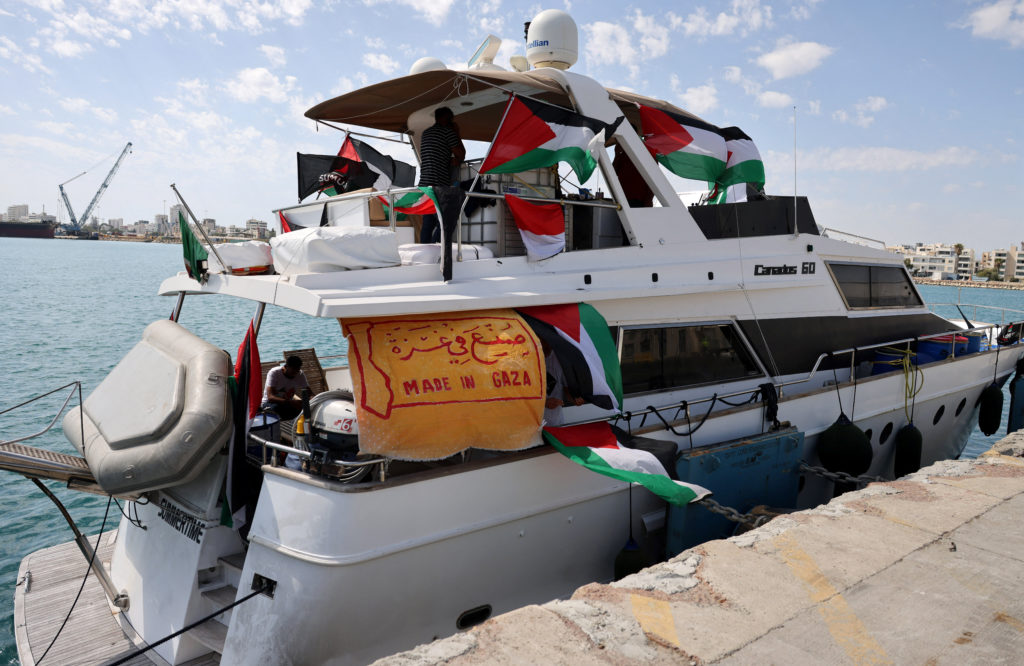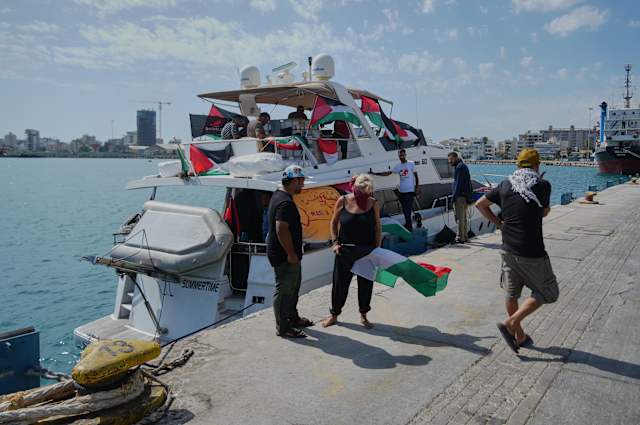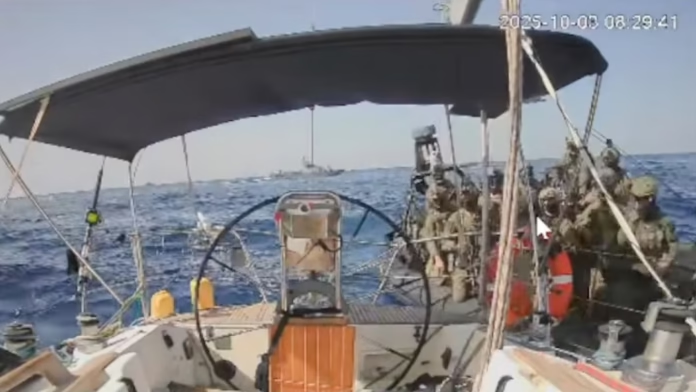Israeli Security Forces Intercept Flotilla Bound for Gaza
Israeli security forces intercepted a flotilla attempting to sail toward Gaza this week, sparking fresh political debate and international scrutiny. According to officials, more than 40 vessels were diverted to Ashdod port, where they were inspected by Israeli authorities.
The flotilla, organized by international pro-Palestinian activists, claimed its mission was strictly humanitarian, aiming to deliver supplies to civilians in Gaza. However, Israeli officials described the effort as politically motivated and potentially dangerous.
Ben-Gvir: “These Are Terrorists”

Israel’s National Security Minister, Itamar Ben-Gvir, issued strong remarks following the interception. He stated that the flotilla contained “almost no humanitarian aid” and alleged that its participants were not peace activists but rather “terrorists and supporters of murderers.”
Ben-Gvir claimed that security forces found only minimal aid on board, pointing specifically to a single box of infant formula (Materna 1) as evidence that humanitarian relief was not the flotilla’s true objective. He argued that the organizers intended to challenge Israeli sovereignty and provide propaganda support to Hamas.
Organizers Insist on Humanitarian Mission
In sharp contrast, flotilla organizers rejected the accusations, maintaining that their efforts were peaceful and humanitarian in nature. They argued that Gaza continues to face a severe humanitarian crisis, with shortages of food, medicine, and essential supplies due to Israel’s blockade.
The organizers insisted that their cargo included aid items meant for civilians and emphasized that their campaign was designed to raise awareness about the suffering of Palestinians in Gaza. They accused Israeli officials of trying to discredit humanitarian activism by labeling participants as extremists.
A History of Contentious Flotillas

This incident is part of a broader history of confrontations between Israel and pro-Palestinian flotilla movements. Over the past decade, several attempts have been made by international groups to sail toward Gaza in defiance of Israel’s maritime blockade.
The most notable case occurred in 2010, when Israeli commandos raided the Mavi Marmara vessel, leading to violent clashes and multiple deaths. Since then, flotilla campaigns have continued sporadically, often resulting in vessels being intercepted and redirected to Israeli ports.
Security Concerns vs. Humanitarian Claims
Israel maintains that its naval blockade on Gaza is essential to preventing the smuggling of weapons and military equipment to Hamas and other militant groups. Authorities argue that aid intended for civilians can be delivered legally through established border crossings under Israeli supervision.
Critics, however, contend that the blockade constitutes a form of collective punishment, severely restricting Gaza’s economy and civilian life. Human rights organizations have long argued that independent humanitarian deliveries are necessary due to the ongoing crisis in the enclave.
Domestic and International Reactions
Ben-Gvir’s sharp rhetoric is expected to spark further debate within Israel and abroad. His labeling of flotilla participants as “terrorists” has been criticized by opposition figures, who argue that such statements undermine diplomatic efforts and escalate tensions unnecessarily.
Internationally, pro-Palestinian advocacy groups are likely to condemn the interception, portraying it as another example of Israel blocking humanitarian access to Gaza. Meanwhile, Israeli officials are expected to double down on security concerns, pointing to Hamas’s continued rocket attacks and threats against Israeli civilians.
The Ongoing Blockade Debate
The interception comes amid heightened tensions in the region, with Gaza under strict blockade since 2007. Israel and Egypt jointly enforce restrictions on the movement of goods and people, citing security threats from Hamas, which governs the territory.
While Israel insists that humanitarian aid regularly enters Gaza through approved channels, critics say the volume allowed is insufficient to meet the population’s needs. The debate over flotillas underscores the broader struggle between Israel’s security priorities and international demands for humanitarian access.
Conclusion
The latest flotilla interception highlights the deep divide between Israeli authorities and pro-Palestinian activists over Gaza’s humanitarian situation. Ben-Gvir’s remarks, branding participants as “terrorists,” reflect Israel’s determination to frame flotilla campaigns as political provocations rather than relief missions.
As long as Gaza remains under blockade and its humanitarian crisis continues, flotilla initiatives are likely to persist, keeping the issue in global headlines. Whether seen as a security measure or a humanitarian obstruction, Israel’s handling of such efforts remains one of the most contentious aspects of the ongoing conflict.

